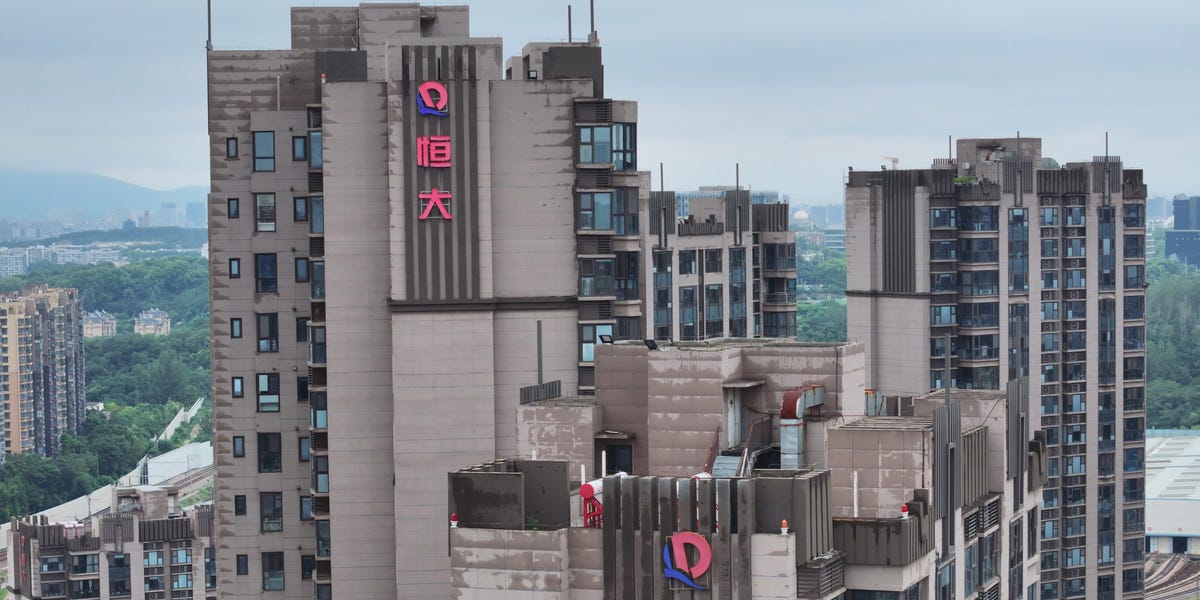- A Hong Kong court on Monday ordered the liquidation of real-estate developer China Evergrande Group.
- Evergrande is the world’s most indebted developer with more than $300 billion of total liabilities.
- It defaulted on its debt in 2021, sending China’s struggling property sector into a tailspin.
———
A Hong Kong court on Monday ordered the liquidation of China Evergrande Group, a move likely to send ripples through China’s crumbling financial markets as policymakers scramble to contain the deepening crisis.
Evergrande, the world’s most indebted developer with more than $300 billion of total liabilities, sent a struggling property sector into a tailspin when it defaulted on its debt in 2021.
That deepened a debt crisis in the sector and sparked many other company defaults in a damaging economic blow that to this day remains a drag on growth.
A liquidation ruling of the developer which has $240 billion of assets will likely jolt already fragile Chinese capital and property markets.
Beijing is now grappling with an underperforming economy, its worst property market in nine years and a stock market wallowing near five-year lows, so any fresh hit to markets could further undermine policymakers’ efforts to rejuvenate growth.



If you stop thinking about the metadata (the financial part) of the system and instead you look at the real system in terms of resources available for ensuring a decent standard of living, you might possibly find that the working population can farm, manufacture and service its own and it’s retired population’s needs. China could make the reforms needed to adjust the meta to fit the real system that supports this standard of living. It might for example remove failed markets from parts of the economy such as retirement savings, replacing them with universal pensions. Of course this isn’t unique to China, but such reforms depend on how firmly a nation has bought into the neoliberal ideology. My point is that in general, the financial part of the system never matches the real. There’s always discrepancies (e.g. positive and negative externalities to name some) large or small. It’s a model. It seems to me that we often make the mistake to consider just the model and drive real decisions and predictions based on it even when it drastically diverges from reality, sometimes with horrific consequences. E.g. the model says increasing extraction of fossil fuels is fine when we have scientific proof it isn’t.